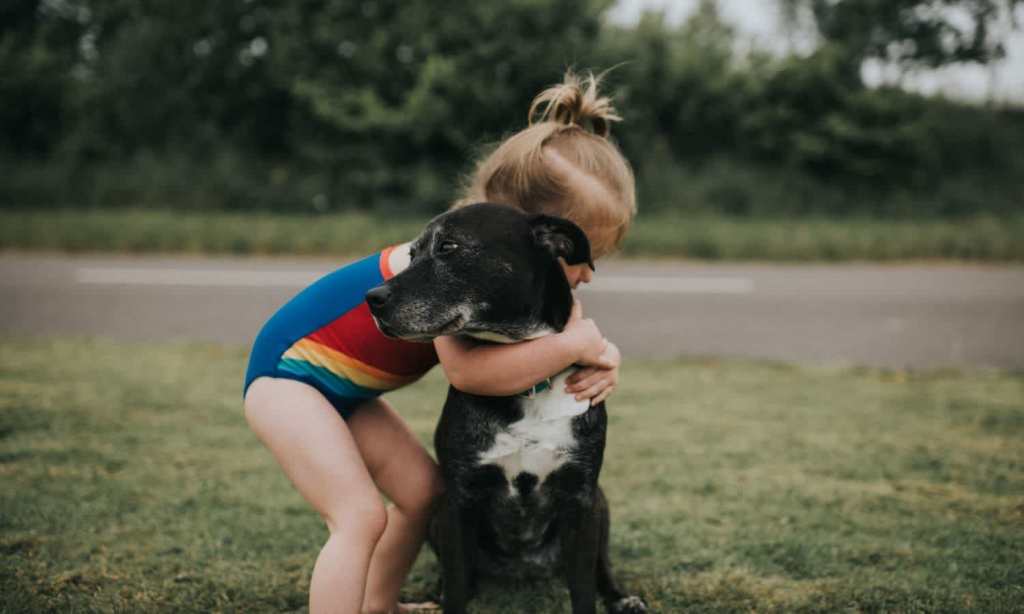In Australia, it seems consent is something many people don’t understand — or at least, in some cases, have a very flimsy understanding of. So, it’s no surprise that one woman is taking matters into her own hands when it comes to her family — more specifically, her two-year-old daughter.
Brittany Baxter posted to TikTok about how she teaches her daughter consent — and at this stage in her life, it’s as simple as letting her toddler say ‘no’ to hugs and kisses from relatives if that’s what she prefers.
https://www.tiktok.com/@brittanybaxter_x/video/6953401192319945985?refer=embed&is_copy_url=1&is_from_webapp=v1
As Baxter says in the video, “No one’s feelings are ever going to be more important than my daughter’s right to her own body. And I’m sure as sh*t not going to allow her to grow up in an environment where 1. She doesn’t know how to say no, and 2. She doesn’t know what it looks like for her no to be respected.”
It’s started a debate, not only in the comment section of TikTok but in the public consciousness — Baxter was even brought onto Sunrise to discuss her point of view.
Instead of entering the debate ourselves (yes, children should be allowed to set their own boundaries), we went to a professional to ask her thoughts about it. Amber Rules, is the director and founder of Rough Patch, an affordable counselling and mental health care service. Turns out, she’s very passionate about this subject and has a lot to say.
And remember, when we talk about consent in this instance, we’re talking about people, no matter the age, having the right to their own body and who is allowed to touch it. Whether affection or otherwise.
Or in child-friendly terms — we’re talking about boundaries.
Rules believes that “Understanding consent is key for a child to learn how to set healthy boundaries, understand when these boundaries are being violated, and grow up with a healthy sense of their agency and capacity to say no to things that make them uncomfortable or frightened.”
In addition to this, she explains that this then works both ways — children learn about other people’s boundaries, and it “helps them learn the skills to understand when they are violating someone else’s boundaries.”
It’s understandable that parents are worried about exactly how to teach this kind of information to their child — and using “age-appropriate language” is key, as is “frequently addressing consent in day-to-day life.”
Two useful ways to help children understand consent include “empathy and metaphor”. Citing an example, Rules says, “If a child hits someone, teaching them to use empathy and self-reflection by saying ‘How does it feel when someone hits you? Does it make you sad or scared? Do you think maybe you made that person feel sad or scared when you hit them?'”
Metaphor can help older children “understand complex ideas more simply” — make sure to pick ways that are relevant to them, and makes sense for them.
Not only does Rules believe we should teach our children consent, but that we should encourage them to practice it as well.
This may include when grandparents or extended family visit — it’s pretty normal (from a developmental perspective) that if a child doesn’t see a family member often, “they’ll feel shy or not want physical contact,” explains Rules.
As special as a hug from a little one is, there lies a special and important opportunity to demonstrate that a child doesn’t have to, and shouldn’t, kiss or hug someone they don’t know well. As Rules emphasises, this “is a good thing.”
If the family member is getting upset or defensive, or just have trouble understanding, Rules suggests asking them “How do you feel about having intense physical contact with strangers?” Help them understand that children are no different in this regard — or as Rules says, children are “even more vulnerable than adults to unwanted touch.”
Statements to encourage children to demonstrate bodily autonomy include: “I don’t want to, thank you”, “That makes me feel uncomfortable”, “I don’t like that”, or “Please stop that right now.”
And remember, teaching them this at a young age will help them as they grow up to be adults, navigating a whole different world of consent.
Rules says kids who learn about boundaries and respectful, thoughtful interactions with others “are more likely to grow up feeling safe and emotionally connected to themselves and others, more able to notice other people’s implicit cues of discomfort or unsafety, more able to advocate for themselves and less likely to violate other people’s boundaries.”
In addition to that, it helps them “develop into adults who are less likely to perpetrate against other people.”
Read more stories from The Latch and subscribe to our email newsletter.







